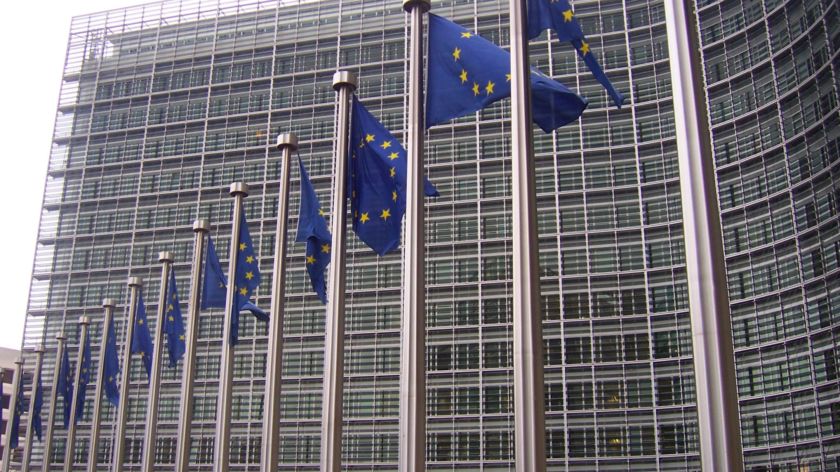Everyone is against Europe (and six other clichés about the EU)
-
 Het Berlaymontgebouw, thuisbasis van de Europese Commissie. Foto: Amio Cajander / Creative Commons.
Het Berlaymontgebouw, thuisbasis van de Europese Commissie. Foto: Amio Cajander / Creative Commons.
‘The money pit called Brussels?’ (‘Brussel is een bodemloze put’) is the title of the brochure the Political History Department is publishing in the run-up to the European elections. 'We should look beyond the clichés', editor Vincent van de Griend says.
The EU is no longer a democratic entity, the European Parliament does not have any real influence and everyone is against Europe. In the run-up to the European elections of 23 May, the Political History Department collected seven of these oft-heard clichés about European institutions.
The clichés are given the necessary context by department staff and by the Centre for Parliamentary History. The result: a thousand copies of a 52-page brochure distributed by the Province of Gelderland, Europe Direct Information Centres and Radboud University.
Clichés
‘This is not a brochure for or against the European Union’, says political historian Vincent van de Griend, editor of the publication. ‘The aim of this brochure is to tackle black-and-white thinking and help the reader understand the sometimes really complicated European Union better. Brexit is causing the debate about Brussels to polarise ever further, but it is important to look beyond the clichés about Europe.’
One of the propositions is: “As a small country, the Netherlands has no say in what goes on in Brussels.”
‘We are inclined to think in these terms. Take for instance electric pulse fishing. Our country was vying for the interests of the Dutch fishermen, but under French and British pressure the fishing technique was prohibited after all. Expansions of the European Union in 2004, 2007 and 2013 make it increasingly difficult for individual member states to impose their will in the European Union.’
‘However, that still does not mean that the Netherlands has no say in Europe. It just means that as a medium-sized member state we have to enter into coalitions with other countries. The Netherlands is much better at this than, for instance, Italy. In view of Brexit, Mark Rutte and Finance Minister Wopke Hoekstra have, for instance, set up a collaboration with Estonia, Latvia, Lithuania, Denmark, Sweden, Finland and Ireland to provide a counterweight to Germany and France in discussions about the European Union’s financial future. This way, the Netherlands carries plenty of weight in Europe.’
During the previous European elections, the turnout was 42.6 per cent, a historical low. Why is there so little enthusiasm for the European Union?
‘First and foremost, we are familiar with politics in The Hague. This applies not only to voters, but sometimes also to politicians. Nevertheless, the European Union has influence on everyday aspects of our lives. For instance, the European Parliament is gaining ever more influence in subjects such as privacy, social security and labour law, although the media are focussing more on Brexit.’
The brochure was cofinanced by Europe Direct, the network of information centres for the European Union in the Netherlands. Is there any danger that you are publishing pro-Europe propaganda?
‘The title in any case is not pro-European (chuckling) Europe Direct network has an educational mission and as such has supported the publication of an informative brochure. The network did not, however, interfere with the content of the brochure. Political historians have written the text, highlighting the different perspectives of core subjects in the debate about the European Union. It is up to the reader to form their own opinion using the background information from the brochure.’
The brochure is available at this link



